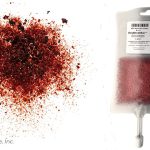Trapped in his car at the scene of an accident and waiting to be extricated, a patient was bleeding, severely. On May 4th, 2022, the UPMC Emergency Response Team, Pittsburgh Public Safety, EMS, UPMC’s Transfusion Service and their partner Vitalant provided their first field blood transfusion and saved the patient’s life.
The patient received two units of whole blood while trapped in his car for over 90 minutes, and a third while en route to the hospital.
“Over two years ago we finalized the protocol to use a blood product to administer transfusions to trauma patients who require extra time to get to the hospital,” said Dr. Mark Yazer, a professor of Pathology at the University of Pittsburgh. “We use a special type of blood product for resuscitating injured patients— it’s called whole blood.”
“All UPMC trauma hospitals use whole blood for trauma patients. For transfusions before the arrives at the hospital, the EMS physician can go to UPMC Presbyterian or UPMC Mercy to get whole blood and take it directly to the patient — it’s like bringing part of the hospital to the patient,” Dr. Yazer explained.
“We have previously demonstrated the safety of using whole blood for this type of patient, and anyone, including children, who needs extra time to get to the hospital and needs the blood, is eligible to get it,” Dr. Yazer shared.
“We focus on extended lengths of time,” Dr. Leonard Weiss, assistant professor in the Department of Emergency Medicine at the University of Pittsburgh School of Medicine added.
Often, patients who experience injuries need blood quicker than the transportation to a hospital allows. Even with the average Pittsburgh trauma hospital being only 10-15 minutes away at any given time, extrication may be delayed but patients may require a blood transfusion sooner rather than later.
“When someone has an injury, they need blood as their treatment— not the typical IV fluids,” Dr. Weiss said, “In Pennsylvania, EMS cannot administer blood products. A physician needs to be present. We have expanded the capability to the field.”
“There are plans to change the law to allow perhaps a telemedicine consultation between a paramedic and a trauma physician who could authorize the administration of whole blood if the patient’s condition warrants it. This would make whole blood more accessible to patients in need,” Dr. Yazer explained.
Usually, critical care teams administer blood transfusions when a patient needs to be transported by a helicopter. Yet, ground EMS tends to arrive to scenes quicker and more often, so allowing EMS to administer this protocol can be life changing.
“I think change to Pennsylvania law would help, while creating specialized teams with specialized training who can do it in the field so EMS can have this opportunity,” Dr. Weiss said.
Dr. Weiss shared that since this program is still new, there isn’t data yet to determine how effective field blood transfusions are locally, but there is data that confirms that blood is better for trauma injuries. The clinical studies that have been done in this area help to determine which trauma patients will benefit from a pre-hospital transfusion.
Collaboration between UPMC specialty physician groups, EMS and Pittsburgh Public Safety continues to provide life changing medicine.
For more information please visit path.upmc.edu.








